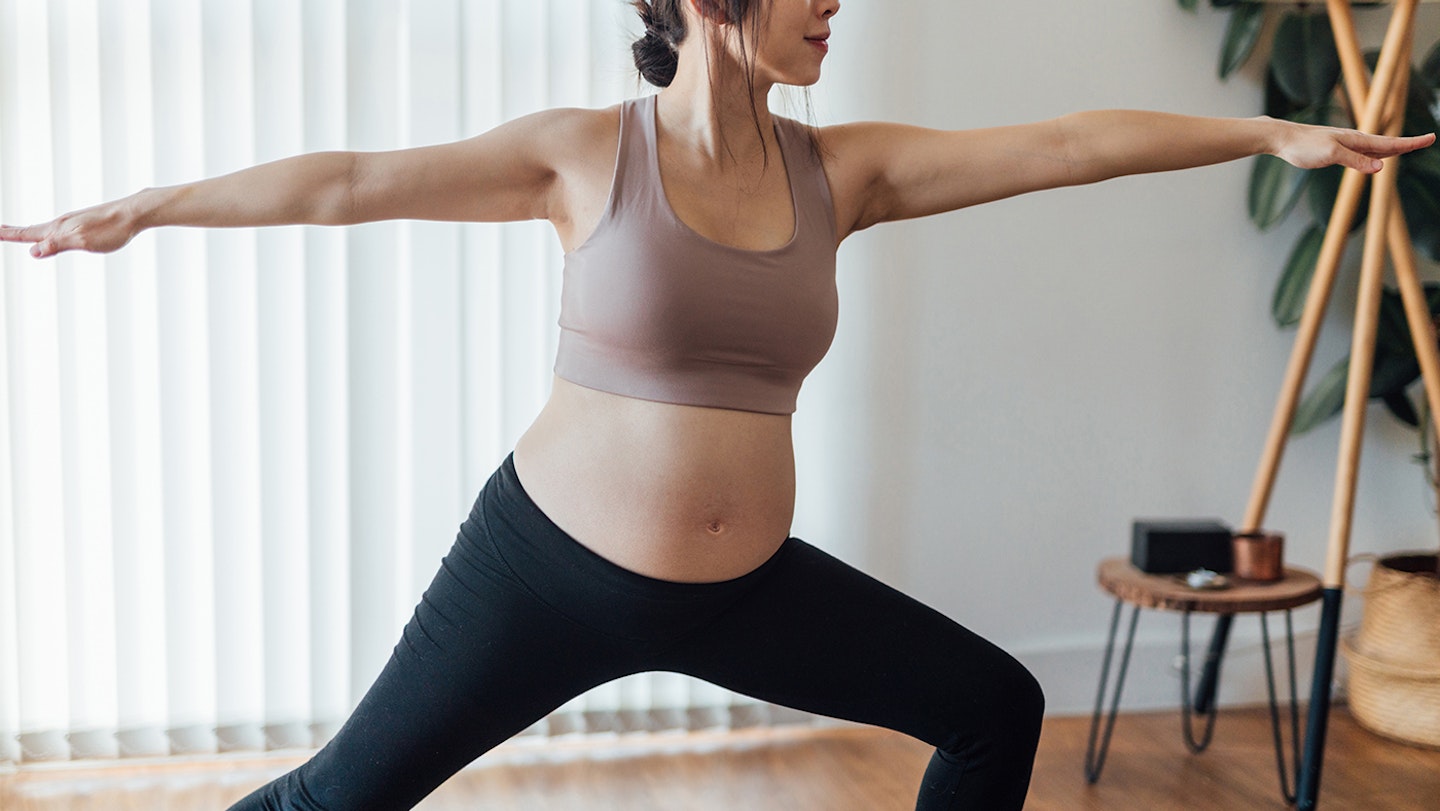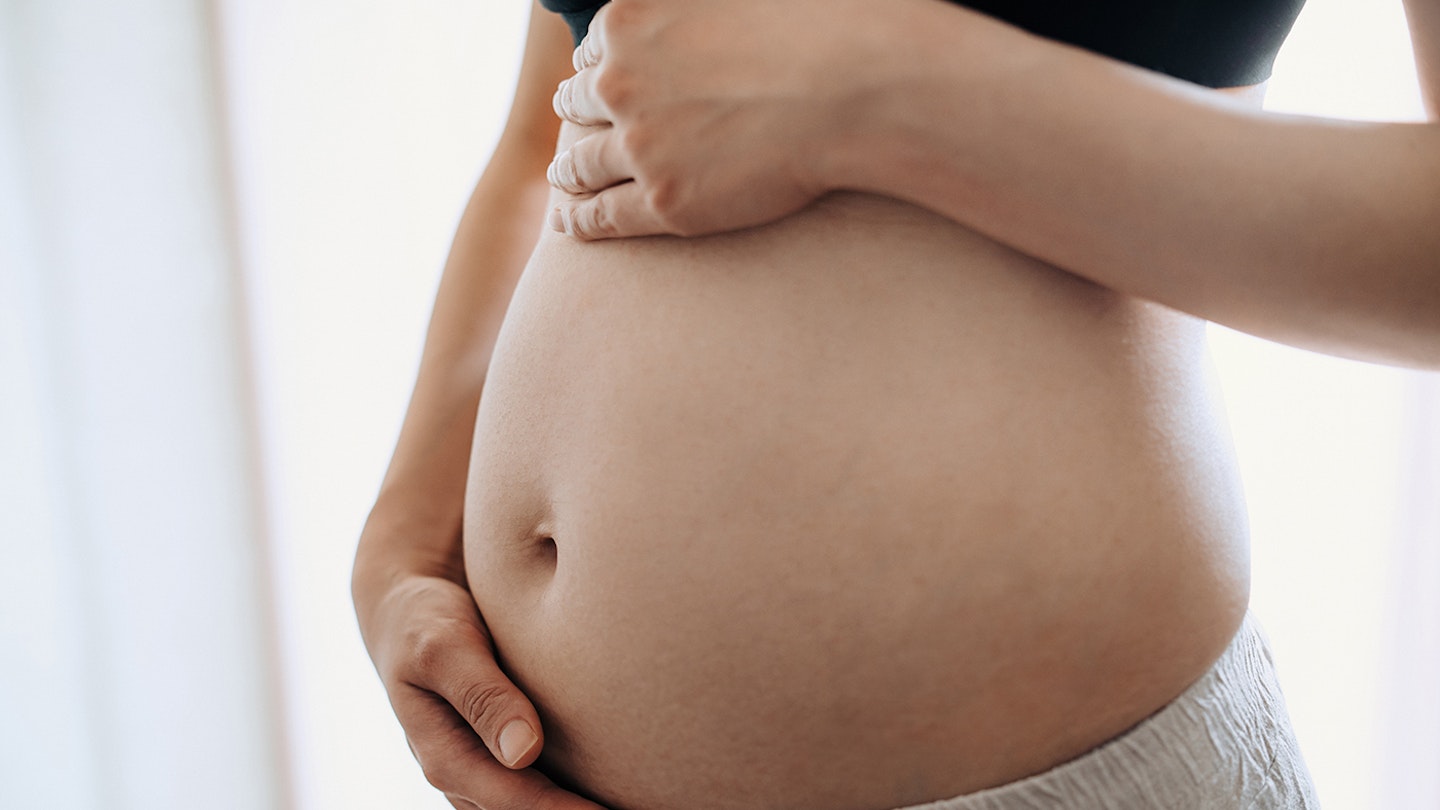Medically reviewed by Consultant Obstetrician and Gynaecologist Ms Ayanthi Gunasekera
At 16 weeks pregnant, you will probably have the beginnings of a baby bump amongst other physical changes to your body. Here’s everything that’s happening to your baby, your body and any symptoms you might expect at 16 weeks pregnant.
Your baby at 16 weeks pregnant
"At 16 weeks pregnant, your baby is approximately the size of an avocado or a clenched fist," says Ayanthi. This is about 11.6 cm long and weighs about three to four ounces.
You are in month four of your pregnancy.
What’s my baby doing at 16 weeks pregnant?
Your baby's heart is pumping 28 litres of blood a day. They can also hold their head more steadily.
"Your baby is also practising coordinated muscle movements, including those for sucking and swallowing," Ayanthi explains. "Facial expressions become more dynamic as the baby practices making different faces."
While this week they’ll start making facial expressions, they don't really have any control over them just yet.
"Bones are hardening, and the skeleton is becoming more defined," Ayanthi adds. "Hair growth on the baby's scalp begins and toe and fingerprints are forming_._"
Your foetus might be looking more like a baby, but they've still got some way to go. At the moment, they've not got any baby fat yet and their skin is still translucent. Do not fear, both of these will change in a few weeks.
By this time in your pregnancy, your baby can hear your voice, the sounds of your digestive system (don’t worry, they find it reassuring) and the music you play them. In fact, studies have shown babies who hear a song in the womb recognise it when it’s played to them once they’ve been born.

16 weeks pregnant bump
"By this stage, your baby bump is becoming more noticeable as your uterus continues to expand," says Ayanthi. But, this isn’t always the case and depends on the size of you and your baby, so don't worry if you've not seen your belly change yet and don't compare yourself to other pregnant women.
Now that your bump is starting to show it’s very normal to struggle with the weight gain that comes with pregnancy but aim for around four pounds a month to keep your body and baby healthy. Now is the time to invest in a pregnancy wardrobe you feel good in!
16 weeks pregnant symptoms
"Morning sickness may begin to subside for many women at 16 weeks pregnant," says Ayanthi. "Energy levels often improve, and you may feel more like yourself."
Here's what else you can expect...
Nose bleeds
The mucous membranes in your nose also start to swell. This can leave you feeling pretty congested and even give you the odd nosebleed in pregnancy. If you’re really uncomfortable, ask your GP about pregnancy-safe nasal sprays, or try nasal strips.
Dark or pigmented skin
"Due to pregnancy hormones, some women may experience changes in skin pigmentation, such as the darkening of the linea nigra (a line on the abdomen)," says Ayanthi.
You may notice other areas of your body looking darker. Common examples of this are the areola around your nipple, and moles, freckles and birthmarks darkening. In most cases, pigmentation will disappear after birth, so isn’t anything to worry about.
Glowing skin
You might get some pigmentation, but now is the time you might start noticing that infamous pregnancy glow. Generally, pregnancy glow is used to describe the shiny, vibrant and refreshed-looking skin some women have while pregnant. Greater blood volume brings more blood to vessels, resulting in skin that looks flushed. Changes in hormone levels might also cause the skin glands on the face to secrete more oil which can make skin look slightly shinier.
Vaginal discharge
This has been a symptom on and off for several weeks now. This is very normal, and super beneficial to your body as it protects the birth canal from infection. However, it might not be comfortable, so invest in some light panty liners.
Another symptom that you always hear mentioned! It is unclear why you get a foggy feeling or forgetfulness during pregnancy. It might be a mixture of tiredness, hormonal changes or the simple fact you have a lot going on!
Varicose veins
Another side effect you might not be too thrilled with. You can minimise the appearance of these by keeping your feet up and keeping that weight gain gradual so as not to put too much pressure on your circulatory system.
Constipation
Another repeat offender. Those pregnancy hormones and your expanding uterus putting pressure on your bowel can slow things down, making constipation in pregnancy a common symptom. Drink more water to try and keep things moving naturally.
Backache
An aching back is a common side effect of your changing hormones. It may also be related to your breasts growing in size throughout pregnancy. Try low-impact exercise such as prenatal yoga and make sure to stretch regularly.

Breast growth
It's not just your bump that's really starting to show, "Breasts may continue to enlarge and become more tender," says Ayanthi. Some mums-to-be might be pretty pleased with this side effect, but if you've already got a large chest it could prove irritating. Don’t worry, once you’ve given birth and if you choose to breastfeed, your boobs should return to their pre-pregnancy size (there’s no need to throw out your favourite bra just yet!).
However, do make sure you go bra shopping! As your bump gets bigger, do not forget your boobs. Thanks to those pregnancy hormones, your breasts could go up a few cup sizes and they’ll need adequate support. The right support will also stop droopiness later on, so if you ever need the excuse to go bra shopping, it’s this! You’ll need to get properly measured and invest in comfy, breathable, non-wired maternity bras– underwiring should be avoided as it can dig in and damage tender breast tissue.
Bleeding gums
90% of pregnant women experience gum issues, so rest assured you are not alone, despite this being a rather unspoken side effect of pregnancy. So, it's extra important to look after your teeth and gums when pregnant.
Dry, itchy, sensitive eyes
This is a new symptom. Once again, it is down to those pesky hormones. You could try eyebaths or over-the-counter eye drops. Make sure to consult your doctor or midwife before choosing any.
What to do at 16 weeks pregnant
• Start your research: While you have plenty of time, it's never too early to take the time to educate yourself about childbirth, feeding, and parenting. You may want to consider attending pregnancy classes or joining support groups to connect with other expectant parents.
• Exercise: "Engage in moderate exercise with your healthcare provider's approval. Pregnancy yoga and swimming can be good options," suggests Ayanthi.
• Maternity clothing: You may start to notice changes in your body, and your regular clothes may become less comfortable. Consider investing in maternity clothing for comfort and style.
• Have a play with gender tools: There are plenty of old wives’ tales on predicting whether you’re having a boy or a girl such as the Chinese Gender Predictor or the nub theory. Of course, none of these predictions are 100% accurate and are just a bit of fun. The only way to truly tell is at your 20-week scan.
• Consider your health and diet: Focus on maintaining a well-balanced diet rich in nutrients. Ensure you're getting enough folic acid, iron, calcium, and other essential vitamins and minerals.
• Stay hydrated: Drink plenty of water to stay hydrated, as it's crucial for both you and your baby's well-being.
• Bond with your baby: "Consider activities that allow you to bond with your baby, such as playing music or talking to your belly," recommends Ayanthi.

Is there an ultrasound scan at 16 weeks?
There is not a scan at 16 weeks pregnant. but there should, however, be an antenatal appointment. At this appointment, your midwife or GP will give you information about your 20-week ultrasound anomaly scan. At this point, according to the NHS, your healthcare professional will also:
• Review, discuss and record the results of any screening tests
• Measure your blood pressure and test your urine for protein
• Consider an iron supplement if you're anaemic
A journalist since 2015, Emily Gilbert is the Features & Reviews Editor for Mother&Baby and has written for the website and previously the magazine for seven years. Emily writes about everything from the top baby products to pregnancy, fertility and maternal mental health. Specialising in product reviews, Emily is the first to know about all the exciting new releases in the parenting industry.
About the expert
Consultant Obstetrician and Gynaecologist Ms Ayanthi Gunasekera is the Medical information lead at London Gynaecology.
